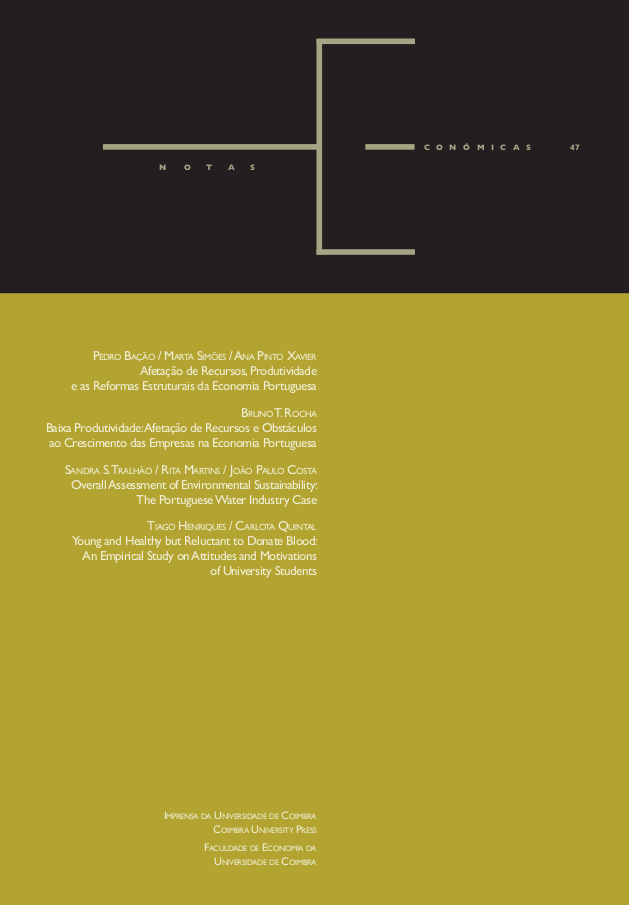Afetação de recursos, produtividade e as reformas estruturais da economia portuguesa
DOI:
https://doi.org/10.14195/2183-203X_47_1Keywords:
Total factor productivity, resource allocation, distortions, PortugalAbstract
From the point of view of “growth accounting”, total factor productivity (TFP) is one of the main drivers of economic growth and plays a fundamental role in the explanation of the differences in economic performance across countries. However, in recent years productivity growth has been declining in advanced economies, and Portugal is not an exception. One of the main determinants of TFP is the efficiency of resource allocation. This paper presents estimates of the deviations – relative to the efficient outcome – of resource allocation between industries within the same sector, in Portugal during the period 2000-2015. The estimates are derived from the model proposed by Hsieh and Kenow (2009). The results indicate that the distortions in the Portuguese economy are significant, especially those associated with the choice of the capital-labor combination. Consequently, the potential gains from reallocating resources are also large, ranging from 30 to 40% of output. However, the size of the potential gains has varied little in recent years. Therefore, the “structural reforms” included
in the adjustment program implemented under the supervision of the troika appear not to have made a significant impact, at least until 2015.
Downloads
Downloads
Published
Issue
Section
License
Authors retain copyright and grant the journal right of first publication with the work simultaneously licensed under a Creative Commons Attribution License that allows sharing the work with recognition of authorship and initial publication in Antropologia Portuguesa journal.









